As you have probably heard by now, all of the kids are at home. This is a semi-joyous occasion when school is on pause, it's only a few days, and there is soft, cold, white stuff on the ground. But when it's sunny, indefinite, laced with anxiety, and school must somehow continue, the vibe changes a bit.
We've been sheltering-in-place since school closed on March 12th, just over two months as I write this. Play dates stopped within a week of the closure and, since then, the only real social contact we have is occasional, distanced conversations with neighbors and video calls. I wanted to get this all down because it has been a weird, exhausting, and challenging time with a lot of opportunity to learn about ourselves and the little humans that we live with.
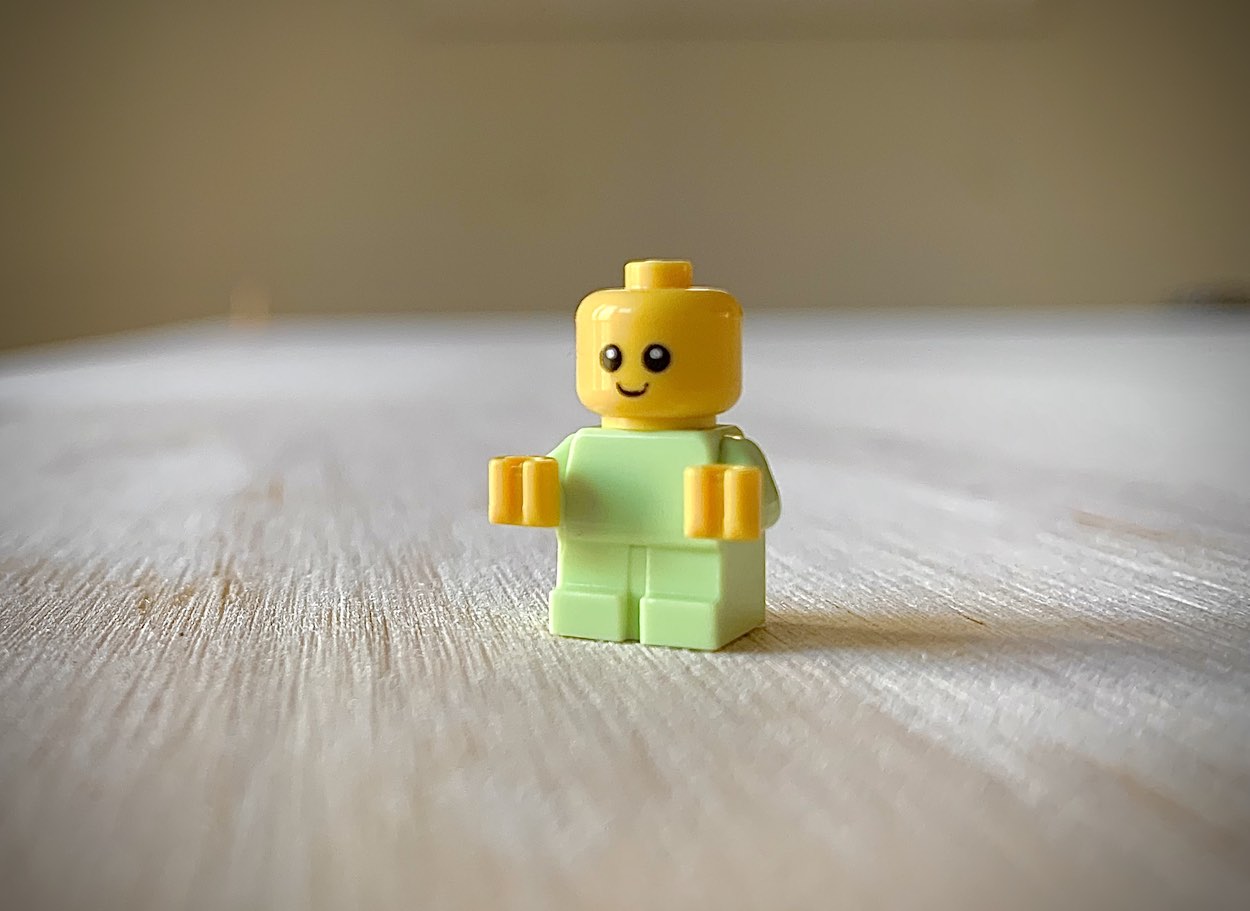
I'll say this clearly and up-front: this is not a guide on how to teach your child. I do not know how to do that with my own kids, let alone yours. This is just one person's story about trying, failing, and trying again. Maybe our path can be helpful if you need ideas or maybe it's just interesting to hear what another family is doing.
If you are a parent going through something similar or an educator with a perspective to share on this, I'd be delighted to talk to you. You can reach me @joshcanhelp on Twitter or josh at this domain by email.
Context
I'm going to focus on our first grader because she is the one we are intentionally teaching. Our pre-schooler is along for the ride and appears to be benefitting greatly from being near all this "education," in whatever format it takes.
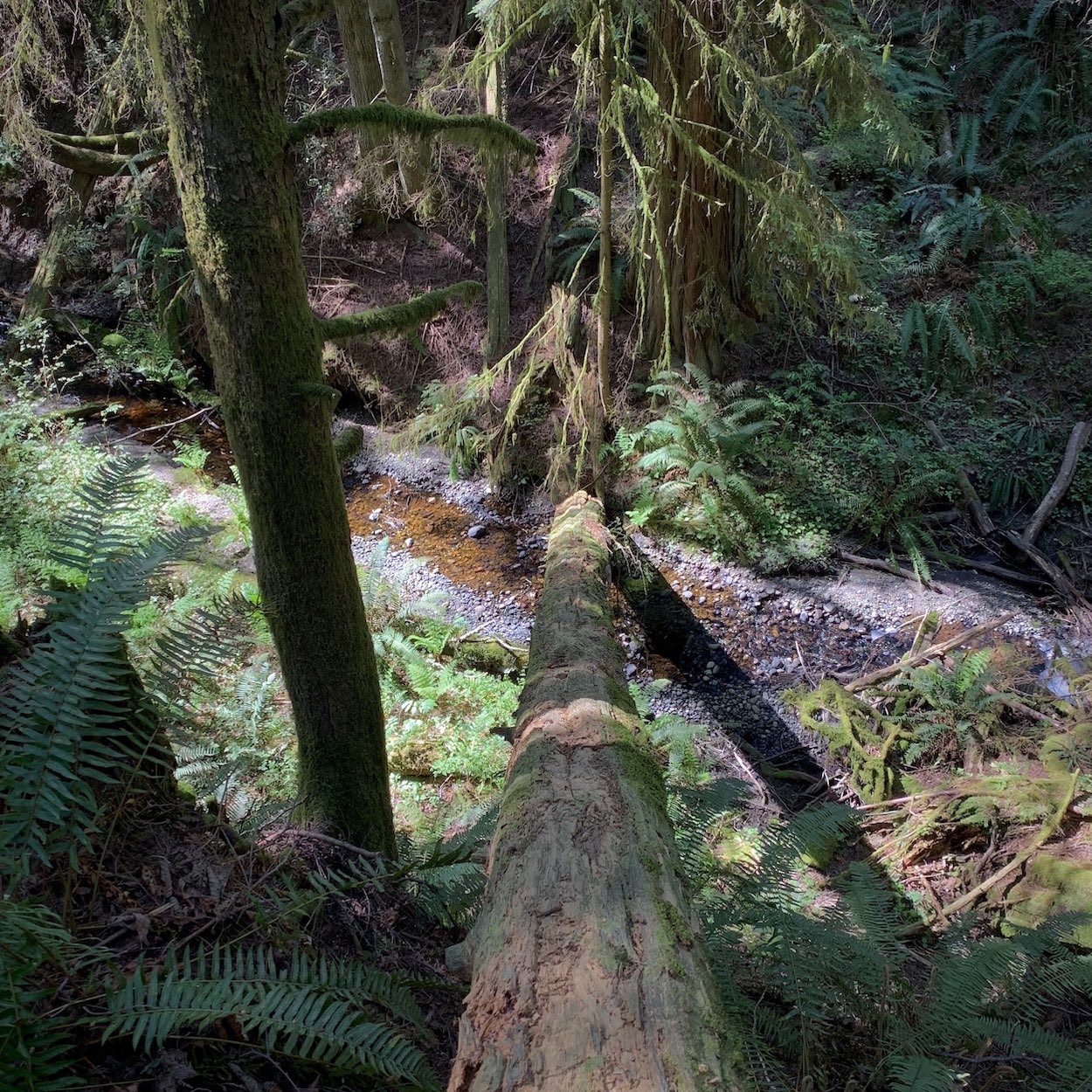
- We live in a clean, quiet, safe neighborhood in a very good school district with access to beaches, state parks, and hiking trails. The trail above is about 10 minutes from our front door.
- Both parents are working from home for compassionate companies and have the flexibility to focus on our kids for a lot of the day.
- Our first grader has no apparent learning disabilities or behavioral disorders. She does, however, have strong, sudden emotional reactions to things she finds difficult, making mistakes, and other scenarios. This has been a challenge for her and us for her entire life.
Things I'm currently accepting as true
I thought it might be helpful to share some of the underlying truths that I'm operating under. If you agree what what I'm saying below then the rest of this might be helpful. If not, then the rest of this might sound like nonsense. These are not things that I knew or believed when this started.
- This is not "homeschooling," this is "trying to help my kids learn at home during a global crisis." The homeschooling parents I've talked to and read are having many of the same issues we are (more on that below).
- Our school is doing the best they can to support us in many ways, even if that support is different than we expected or what we need.
- The critical thing to focus on is staying healthy, reducing anxiety for all family members, and supporting each other. Education, at the moment, is a stretch goal.
- We could be back in school in September indefinitely or it could be another long stretch at home next year. What we do now might be more of a long term strategy than a temporary patch.
Phase 1: We Got This
We were notified about school being put on hiatus in early March. The original plan was to re-open after spring break. My wife and I, plugged maybe too deeply into the progress of this pandemic, were skeptical right away that we would be back before next school year. That turned out to be the case and were notified not long after the original closure that everything would be closed until September.
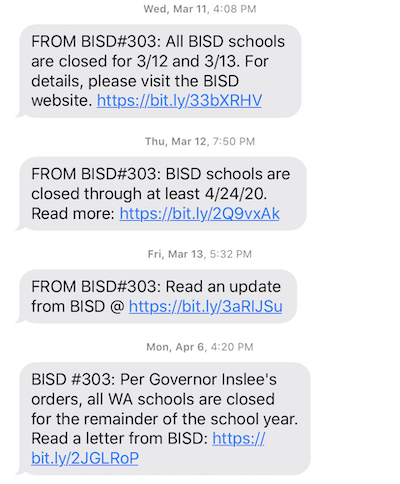
The full impact of this on our family did not strike me right away. My main concern, to be totally honest, was my job and the company that employs me. My secondary concern was my wife's job. For whatever reason, I just figured that the kids' education would just sort of ... work itself out.
Our school was very communicative and proved to be a great source of information about our community in general. What they didn't do, understandably, was send a fully-formed learn-at-home schedule right away. I think it's safe to say that suddenly ceasing classroom learning indefinitely in the middle of the school year was not a scenario anyone was imagining.
After a week of getting our bearings in general (a whole other post), getting used to having the kids around all day while we switched off working (yet another whole post), and trying not to panic shop, we dug in as best as we could. We set ambitious goals (I mean, we had all day to get it done, right?), tracked progress, and ... wore ourselves and our kid right out.
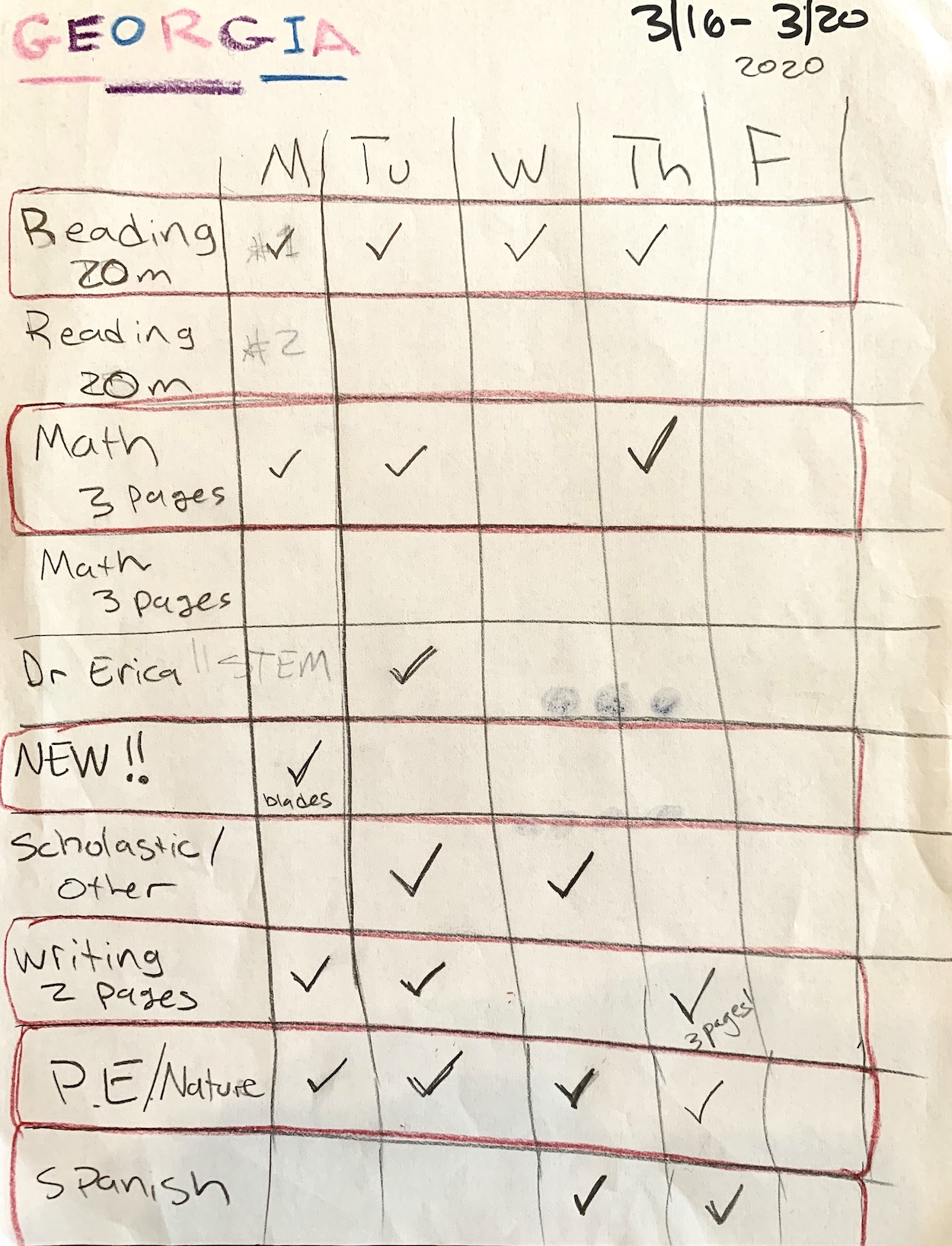
As you can see, we started the week pretty strong but, after 2 days of pushing, we were slowing down. Friday was a complete throw-away, in terms of learning. Tensions were high and our daughter was in no place to focus on the random, unfocused activites we were attempting. We called a truce, made some snacks, and spent the rest of the day hanging out.
Week 2 stabilized a bit and we were thinking "hey, maybe we can do this." Week 3 was an unmitigated disaster by any standard. Why is there a "Sat/Sun" column on there? Were we going to just teach 7 days a week with no break? We were like crazy people.
On Wednesday, we called it "early spring break" and just let it go.
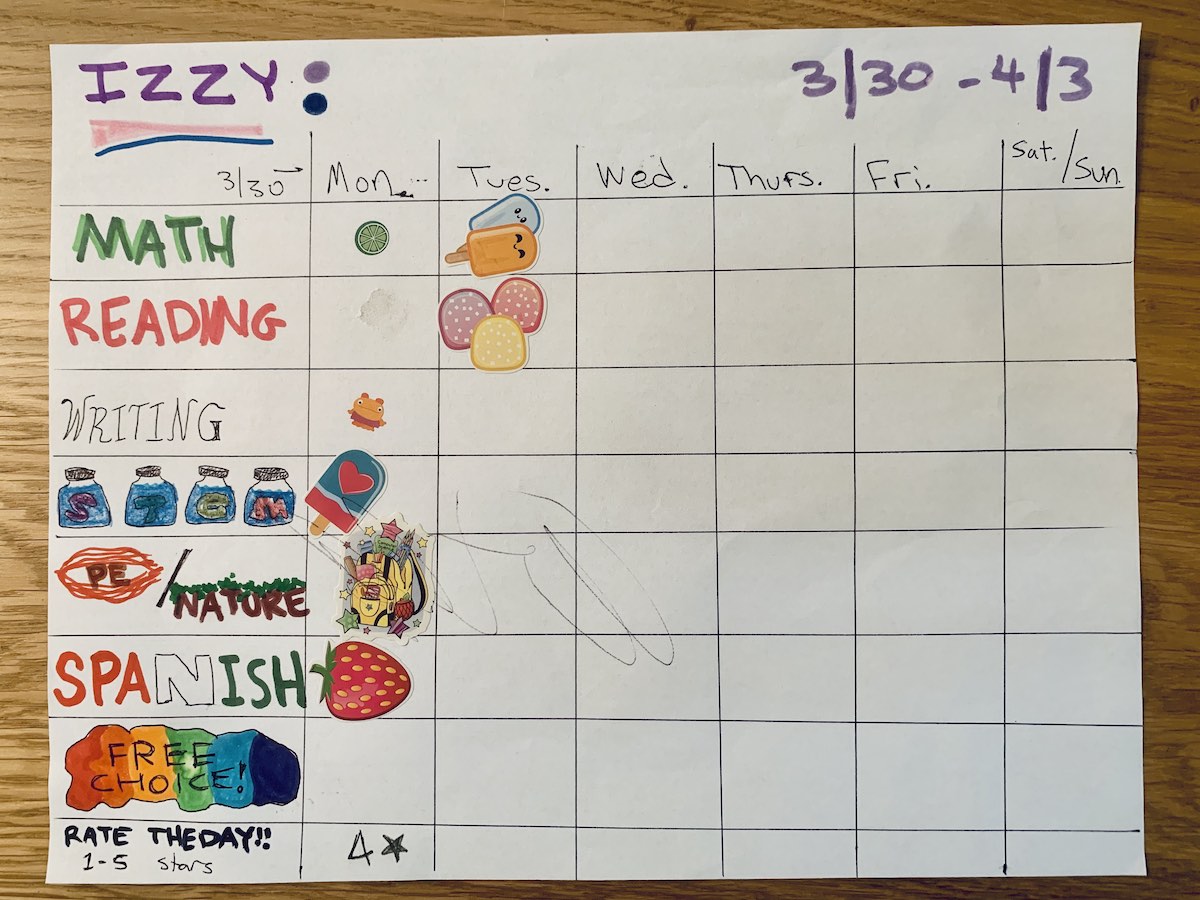
Izzy was the name she wanted us to call her that week.
There were some wins. We signed up for a video series by Rosie Research, an amazing local science teacher. She has a daily video and science project and our daughter loved her after-school class she attended before the pandemic. We mummified a tomato, dissolved an eggshell with vinegar, and tested the strength of friction between pieces of paper.
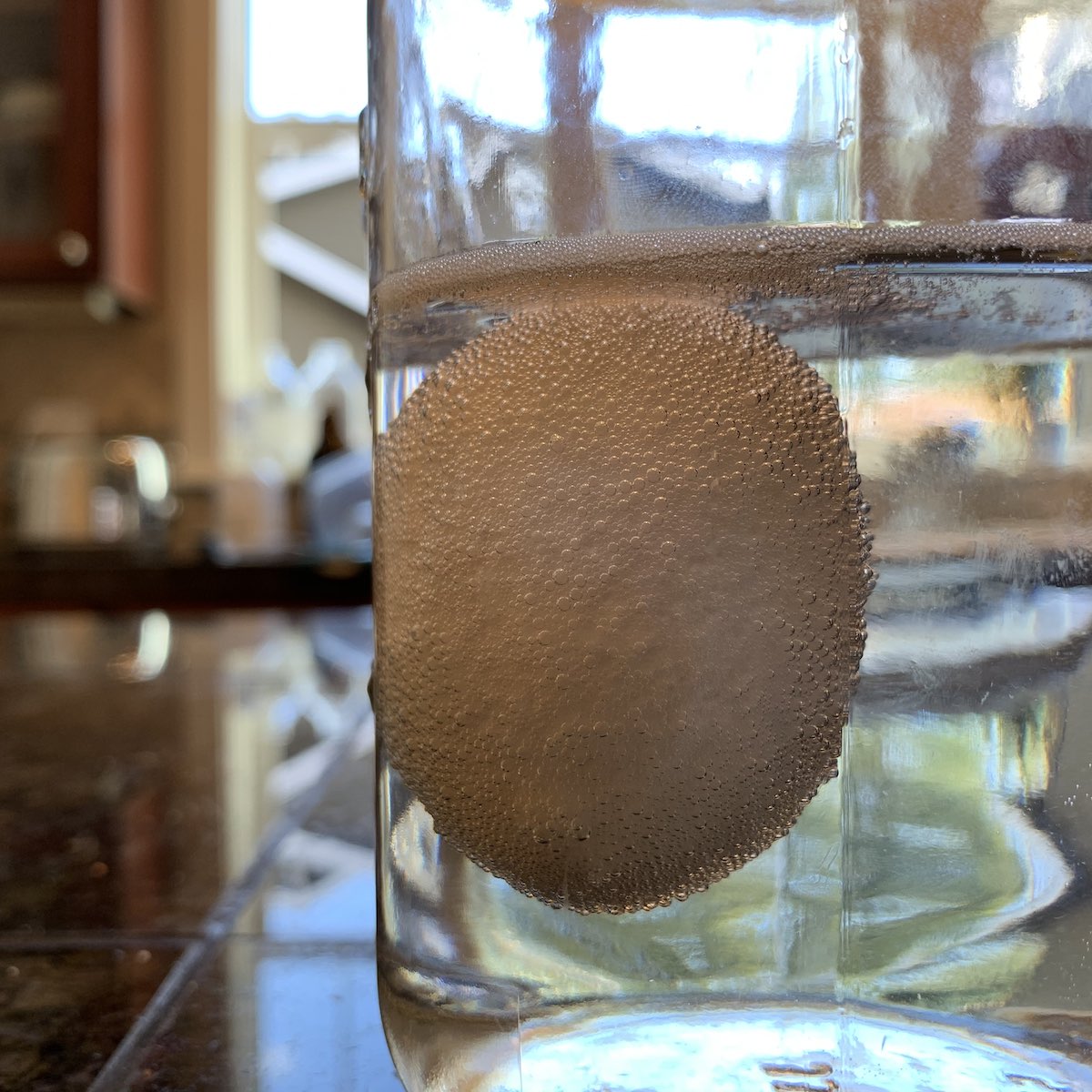
We learned egg shells dissolve in vinegar
In retrospect, it's easy to look back and understand what went wrong. Parent-teachers and kid-students were freaked out about a virus that might kill millions, our whole life had changed suddenly in the space of a week, and we felt like our bright, creative, imaginative kid's education - no, no, her whole future - was in our hands.
NO PRESSURE.
Phase 2: Throw it all out!
The spring break we took was a welcome pause of the pressure and anxiety that surrounded all of us. We explored locally, spent time together, spent lots of time outside, and focused on everything except school. It was great.
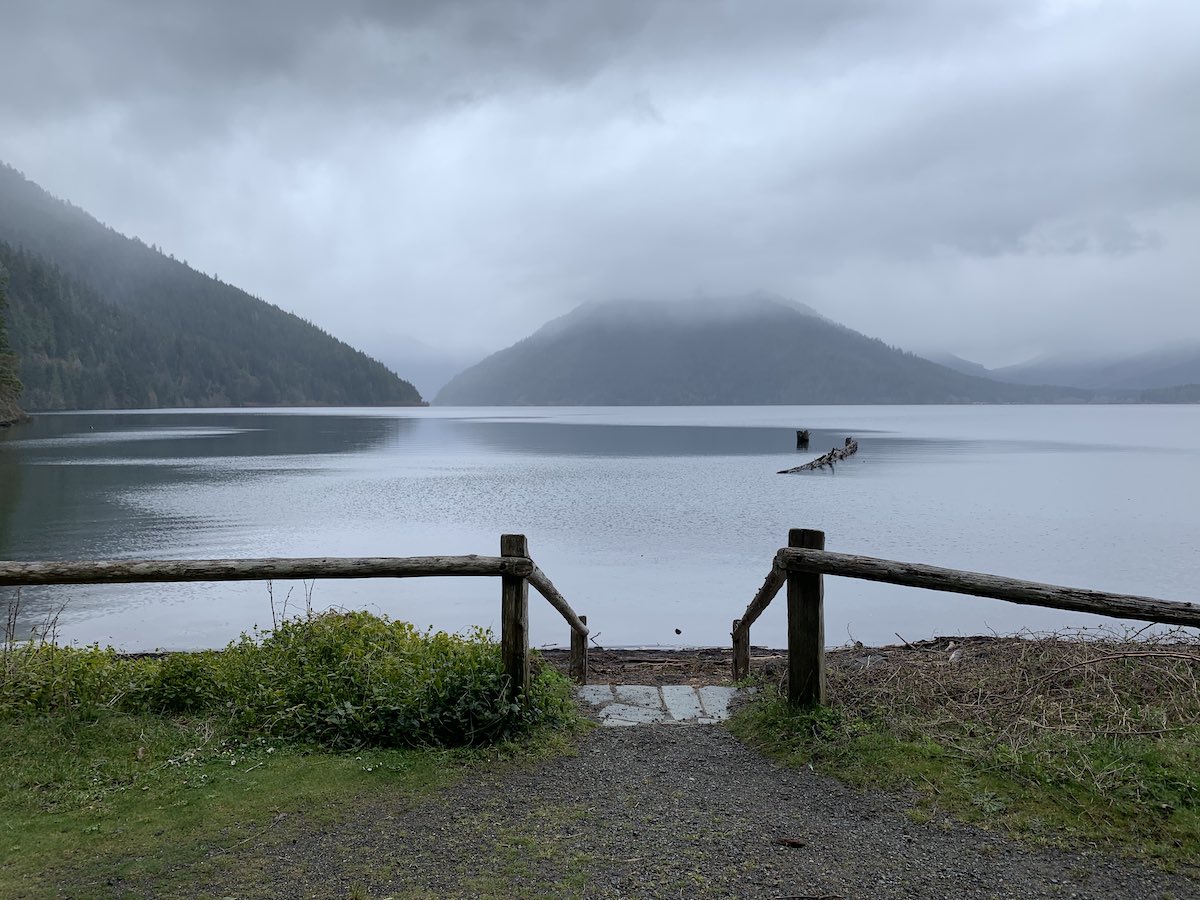
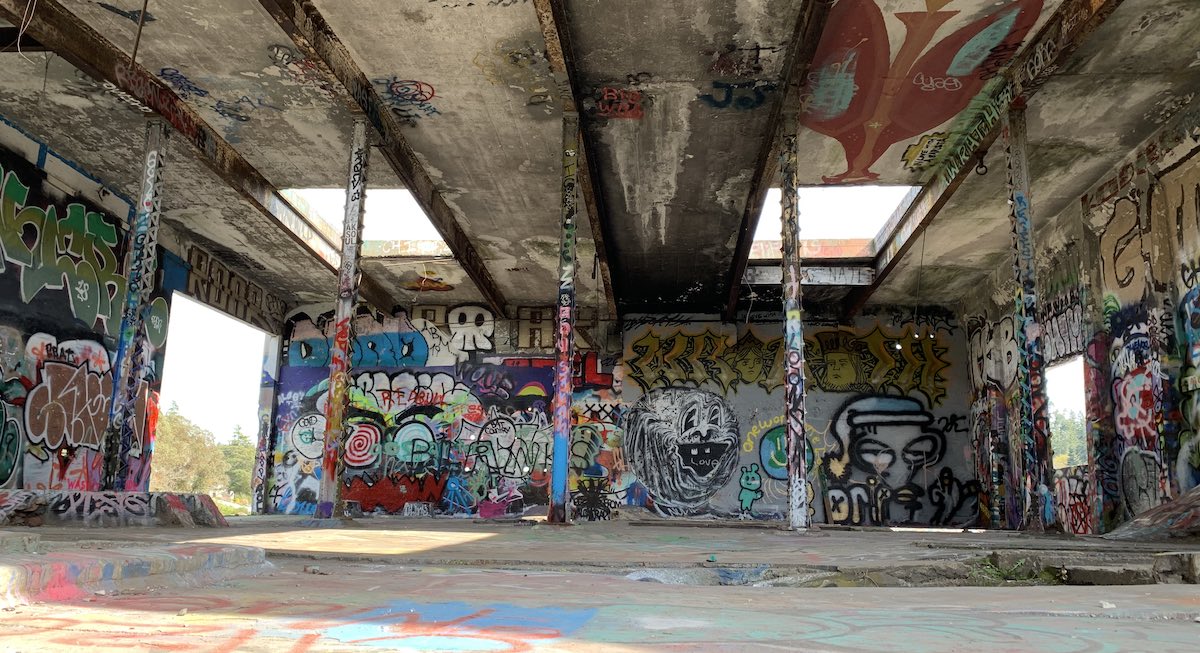
We also changed the whole sticker scheme as well. Our daughter loves stickers and regularly talks about motivation schemes involving them (including a very elborate toy/money/sticker plan she has for her own kids sometime down the road). We thought this might be good for schoolwork, but, as you saw above, it didn't quite do the trick.
So we said "stickers for anyone anytime they get a win." You can award stickers to someone in the family and it could be for anything: a great idea, getting out for nature time, helping with chores, eating a healthy breakfast, anything.
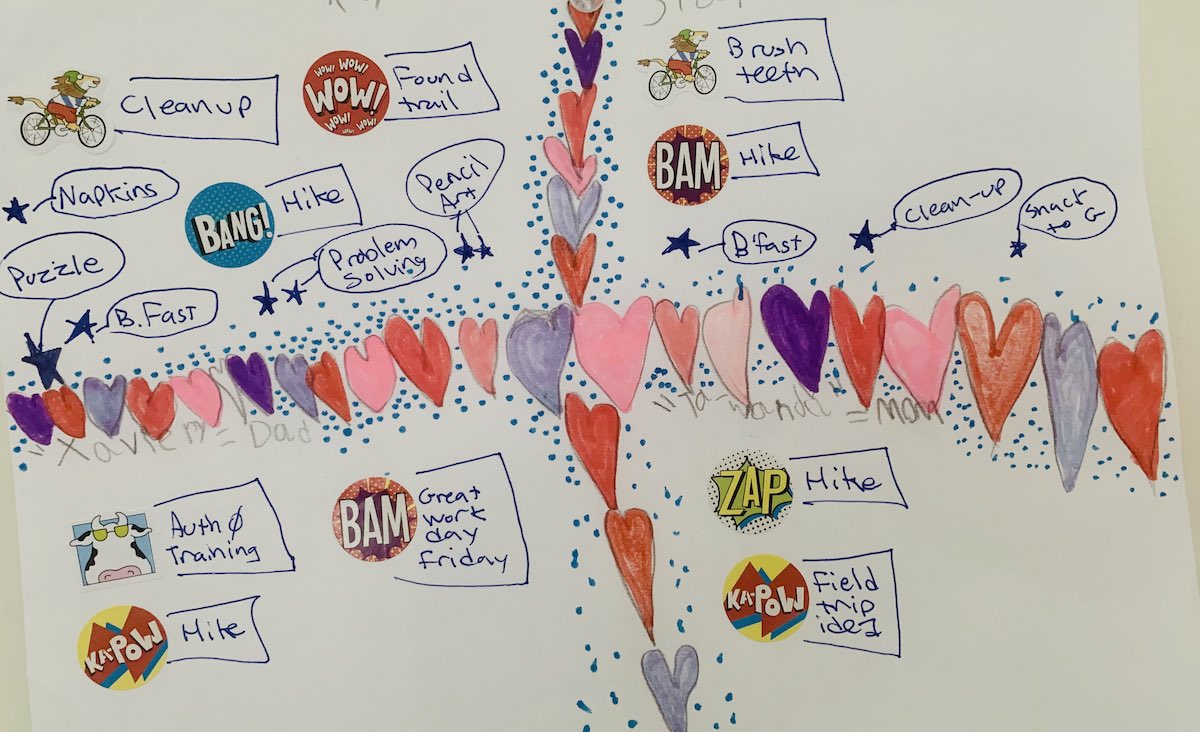
This was definitely a win and gave everyone motivation to do good for themselves. Our daughter was really into it and was very generous with stickers for herself and everyone else.
As all this was going on, I begin to feel an evolution in my head around school, learning, teaching, and the like. Scratch that, A REVOLUTION! Here we are, at home, trying to replicate the public school experience. We had worksheets and schedules and a school-issued iPad but we weren't making any progress. We had a chance to really get to know our daughter, teach her the most important stuff, turn her into a life-long learner.
This was our time.
While these are all laudable goals, the time to do that kind of exploration is probably not in the space between unfocused chunks of work during a global pandemic. Hindsight, once again, is 20/20.
I reached out to a friend who runs an accredited 1-on-1 school, Pacific Learning Academy, and poured out my soul.
I’m much more invested in exploring their interests and abilities while turning them into learners. Our daughter has a lot of emotion around the learning process so I want to support her as best as I can.
Her school is helping us a bit and I know they’re scrambling to adjust so no judgement. But it seems very screen orientated (they issued iPads) and it’s still not tuned to individual students (because of course it couldn’t be). I feel really invested in getting this right and I feel like this virus thing is an extremely unique opportunity for us to have a stake in her future as a critical thinker and scientist (in the general sense) and a chance to get to know her in a way that we wouldn’t otherwise.
This friend introduced me to the concept of Unschooling, which is letting the student choose the path and letting life experiences do the education. She also put me in touch with someone who has been homeschooling for over a decade.
Aside: I recently started reading Free to Learn, written by an advocate for the Unschooling approach. It sounds interesting enough to learn more, at the very least.
I felt like I was on the right path so I started to write down activities, sketched out schedules, and talked to our daughter about what she was interested in. Here are a few things on the list from that time:
- Cooking together (measuring, fractions, food science)
- Board games (math, strategy)
- Reading together (seeing the words and sounds together)
- Make a website (start a STEM blog, catalog lego creations)
- Write a fairy tale together (writing, art, story development)
- Research topics (viruses, bugs, reptiles, how foods are made, weather)
- 1st grader teaches our preschooler
- Writing letters
- Gardening
We would just explore and talk and learn together! Our youngest would follow along, in awe of the world around him! She'd return to school wise and learned and so connected to her family and nature! Or maybe she'd never return, maybe I'd quit my job and just teach them!
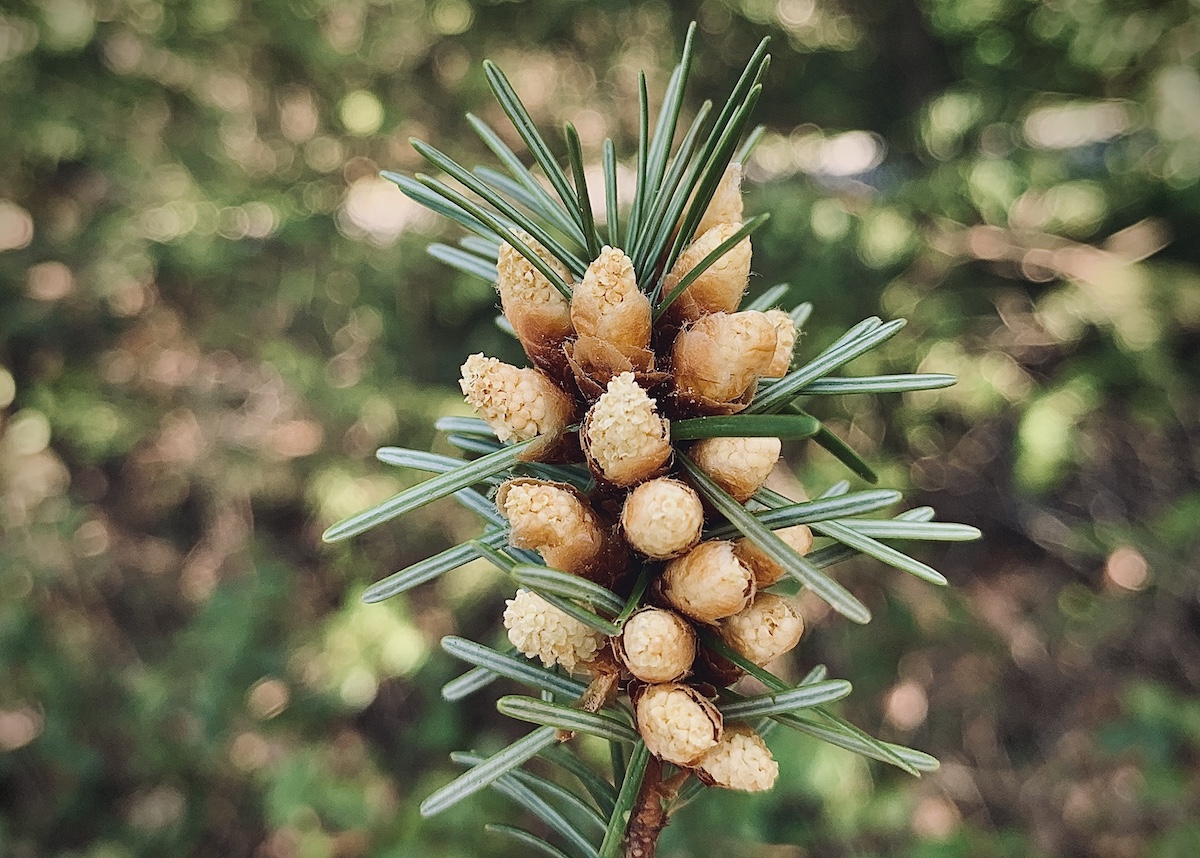
This was really, truly how I felt for a week or two. The delerious optimism glowing brightly with arrogance is both funny and a little bit sad to look back on. The idea that I was going to just suddenly take this challenge on with no additional planning or preparation or extra time and then excel at it immediately is ... ridiculous.
In the meantime, the educator friend of a friend came back to me with a data point about their current homeschooling situation:
I have to tell you that even though I have been homeschooling my kids for a long time (this is our 11th year!) I have had to switch gears the past few weeks, and it’s been tough. My husband is now working from home, from his desk in our living room, and all of the many outside classes and sports that my kids normally enjoy have paused. I’m allowing more screen time, and I’ve encouraged the kids to do more art. I am reading and watching all of the Harry Potter stories with my kids to help fill in the gaps in our day. We’re able to get outside, which also helps ... I imagine that she will be just fine with the academics you are able to work into her day, but that she would appreciate having some extra fun with you!
Meanwhile, the friend I talked with originally sent me an amazing article that brought me back down to earth a bit:
You are NOT homeschooling. You are CRISIS schooling. There is a huge difference. You may choose to homeschool after this, but this is not what homeschooling looks like, not even remotely.
Being home all day is NOT our normal! Our kids are not locked in their houses all day long. We also do all of the things your kids do with sports, dance, clubs, music, etc. in addition to our homeschool community connectedness. Our kids are also feeling disconnected and tremendous loss.
Out of the blue, [children] lost a lot. They lost their in person time with friends, their daily routine and the predictability of life that gives us security.
The whole thing is a fantastic read for anyone that's feeling overwhelmed and putting extra pressure on themselves to get this right. That article came with a note:
I know you have high expectations, but for those of us who have been in education for 25+ years, we mostly recommend you read and play. ❤️
And a well-timed tweet from a former colleague:
Yup, this is also affecting us homeschoolers, too. We're crisis-schooling, it's just we've had a longer period of time to to adjust for the advantages and disadvantages of the venue. grin
The message was: calm down, plug in, and let the expectations go. The question was: could we do that?
Phase 3: Go with the flow
That brings us to where we are now.
The "Things I'm currently accepting as true" section at the top of this post is my mantra. Keep the parents sane and rested. Keep the kids exploring nature and moving their bodies and doing cool stuff that doesn't involve a screen. If we can do all that along some of the learning below, that's a huge win.
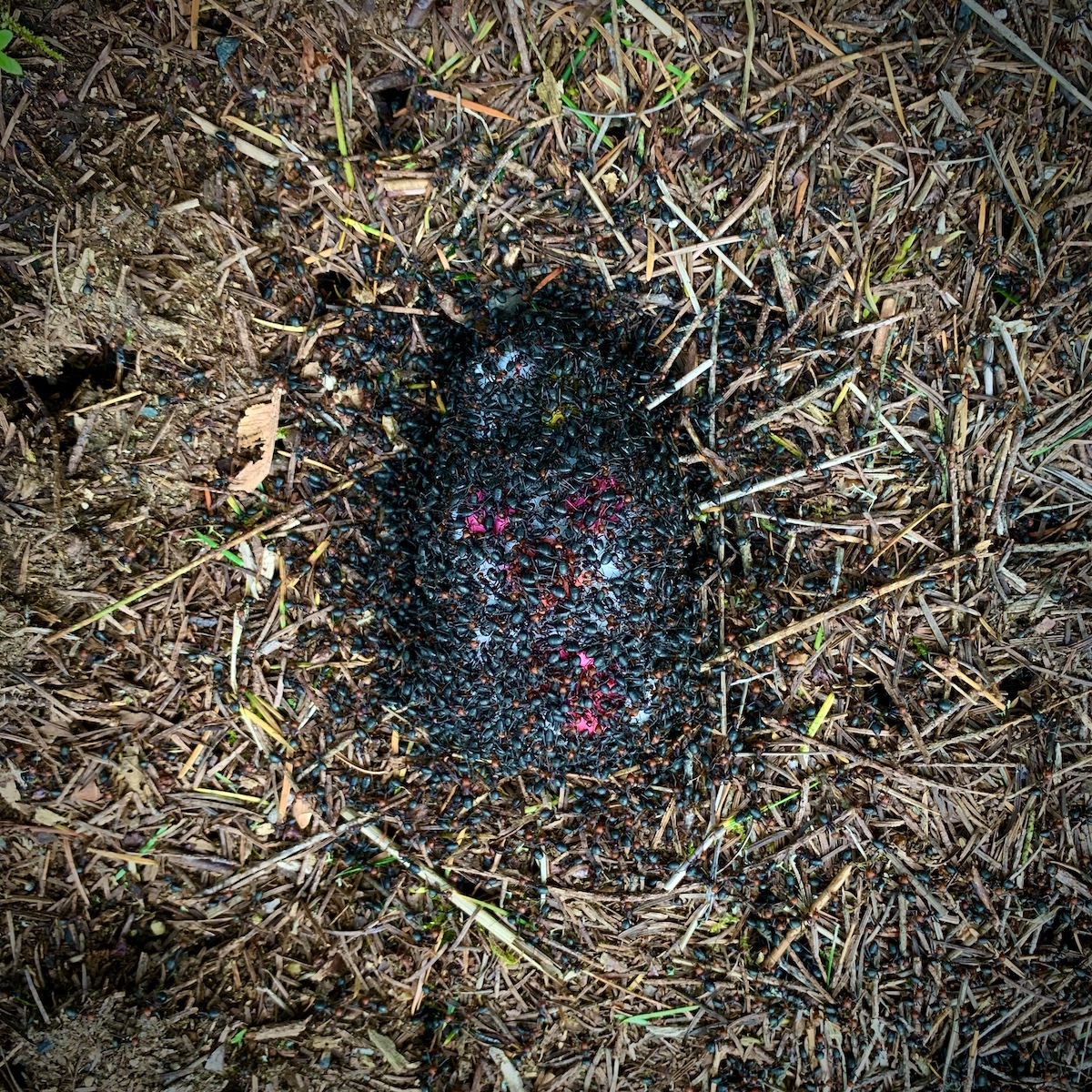
Fire ants devouring a Day of the Dead sugar skull (she got an ant bite and never wants to go back)
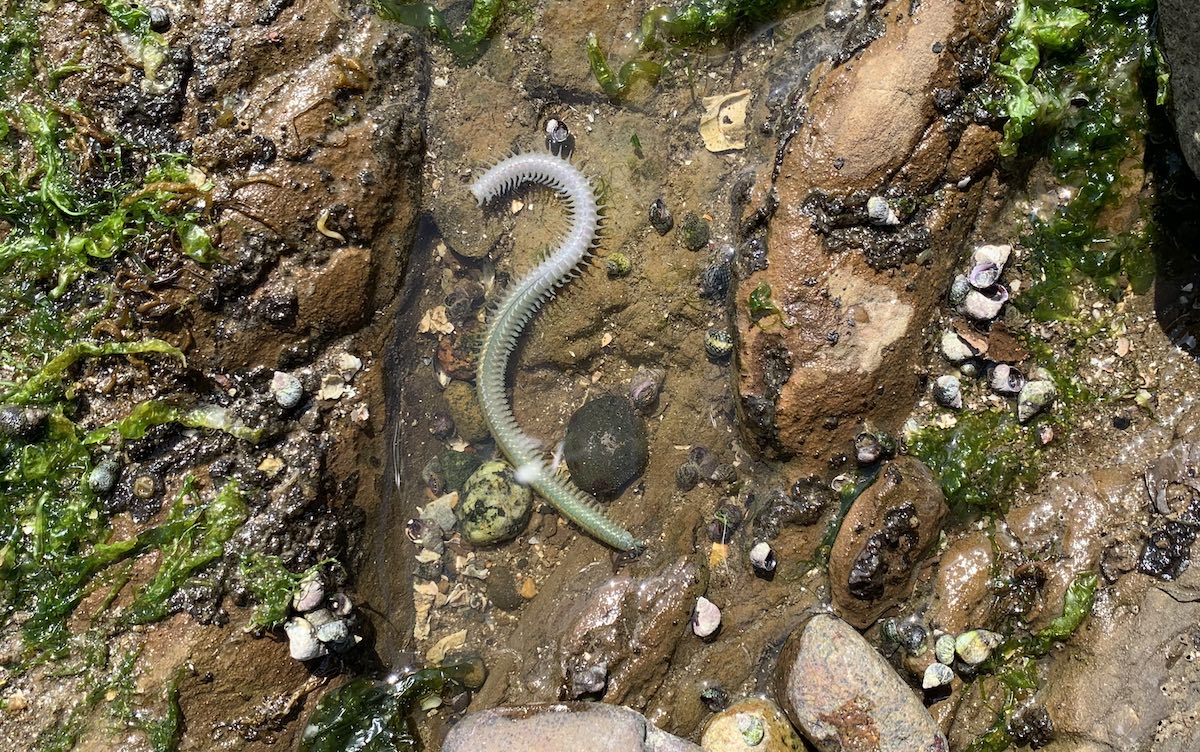
A strange sea creature we found at the beach
We've been trying to involve both kids in as much of what we're doing as possible. Chores, typing on a keyboard, cooking, fixing things, whatever it is. I'll admit it, I'm not great at this. I just want to get the thing done so I can move onto the next thing. But having our first grader type out Git commands in the terminal or help clean the car or make pancakes, it feels like good stuff, the kind of stuff you can't get at school.
We've also been doing a lot of art and LEGOs. Our daughter has an incredible imagination and comes up with these elaborate stories and worlds and characters in her head. She'll tell us all about them but is reluctant to build or draw or represent them in the real world. Her high expectations for herself (cough) make it hard to make mistakes and just practice. But we're doing our best to encourage it.
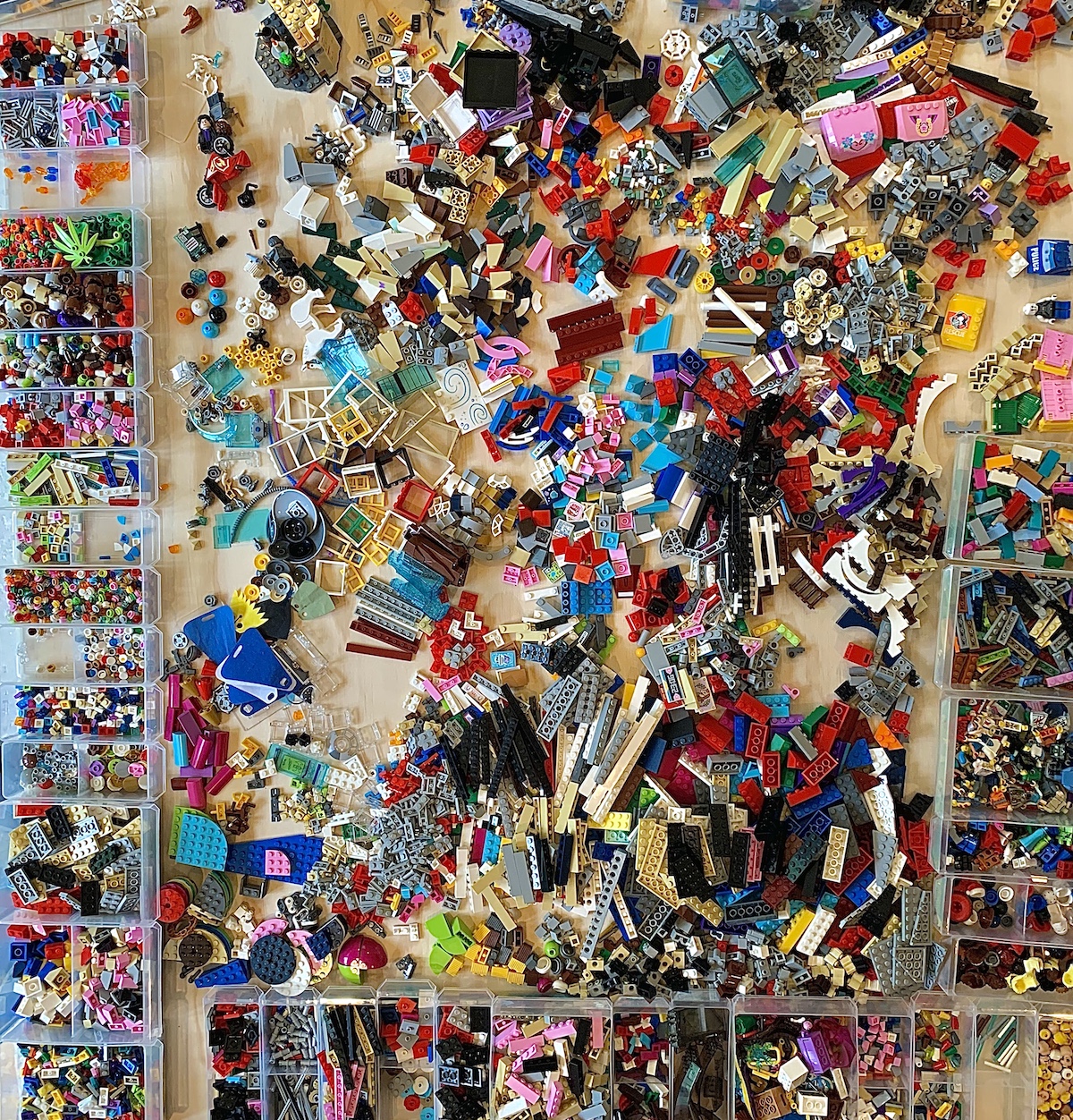
We get a weekly calendar with daily activities from our teacher, which has been helpful in that we have something to do. We're trying hard not to see this as a list of everything we have to get done during the week. Instead, it's a list of ideas for the week along with resources we wouldn't have otherwise.
We stick to the 3 core subjects: reading, writing, and math. In an effort to keep the screentime low-ish, we'll do one of the 3 subjects on an iPad and the other two with pencil and paper.
For math, the school-assigned app is ST Math, aka Jiji, a little penguin that accumulates points for correct answers and loses lives for too many incorrect ones (?). It's strange but it encourages visual learning and she can get into it. We also bought an Osmo kit based on her very positive feedback when we tried it at the Living Computer Museum in Seattle.
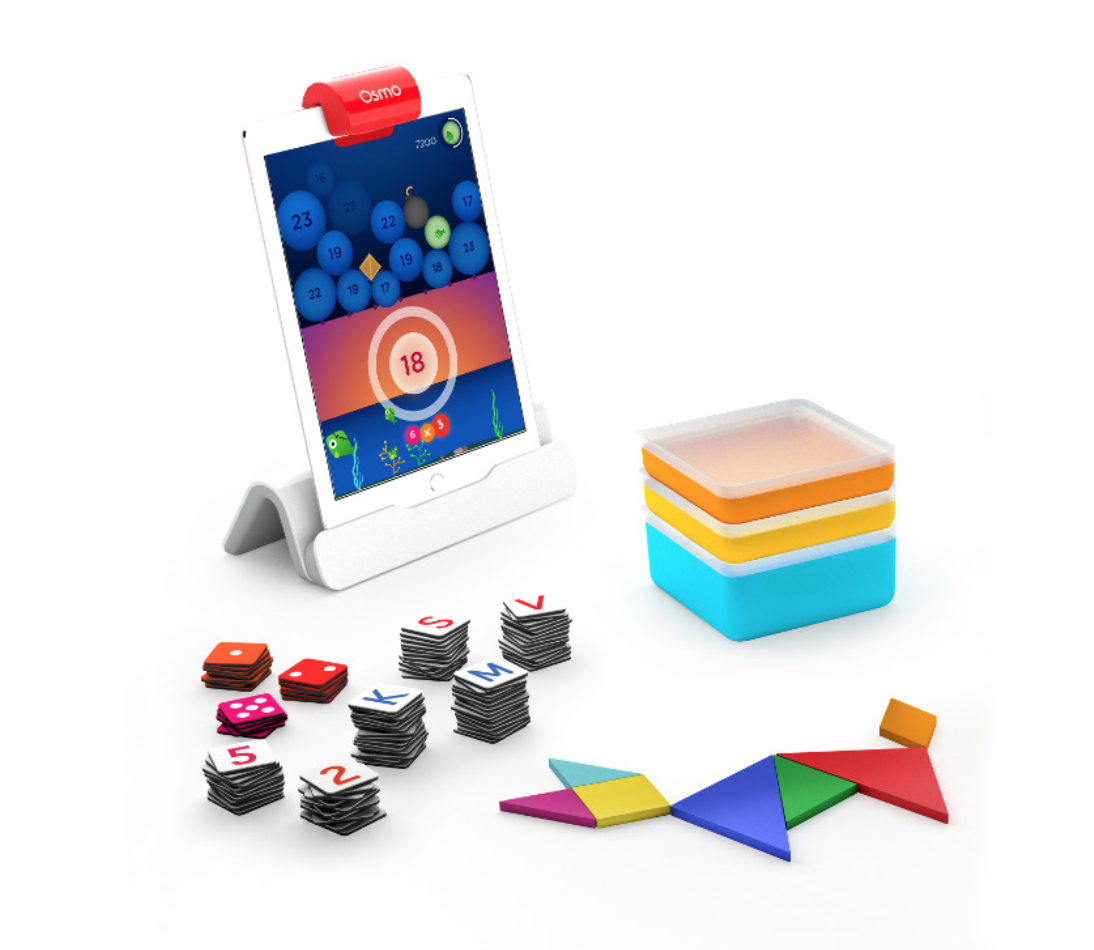
On paper, I write out math problems different ways based loosely on what she's being assigned in her class. Sometimes these go well and sometimes this is a complete disaster. She does well if she can do the problems at her own speed and we just teach the concepts the next day, rather than correcting right after.
Reading has been a challenge. Sometimes she'll pick up a book and read to us for a while, trying words out and getting through it. Sometimes it's an emotional rollercoaster. She despises "performing," which is the category that reading out loud goes in. Reading in her head will, of course, be how she will read all the rest of her life but we can't tell if she's actually reading. One activity that works fairly well is having her read on her own and write down all the words she didn't know (2 in 1 with writing).
Writing has been probably the hardest of all. She finds it tough, a lot of the time, to get words out of her head and onto paper. After several attempts that ended in tears, I asked her to describe what was going on in her head. She described this sort of swirling mass of thoughts that she has to fight through sometimes to get at the one she wants. It was a surprisingly lucid, self-aware description of what she was going through and I asked her to tell me when she was feeling that way so we could pause or call it quits.
Going forward
That's where we are now. The kids have learned some things, the parents have learned even more, and we're just trying to stay sane while keeping a pair of active, creative, and sensitive brains doing their best.
The hardest part about all of this is the tension in my head about doing the right thing. All day, I go back and forth in my mind on how to do this. I want the best for these two, but what does that mean? Will she thank me later for pushing a little harder now or am I adding more anxiety by trying to do any school work at all? Do I need to read more about teaching? Do we need a coach of some kind? Or a therapist? Or a tutor?
WTF am I doing?!?
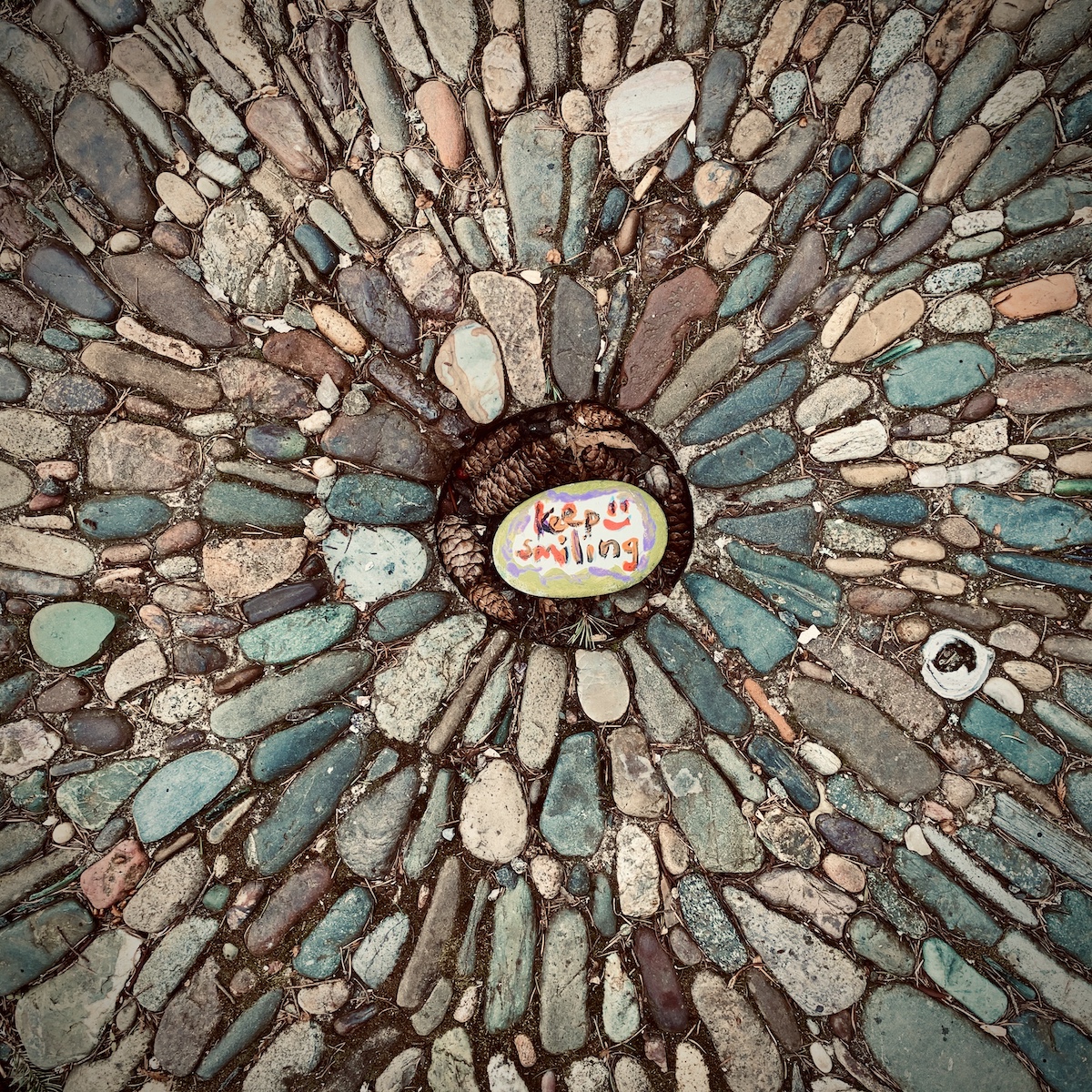
But then I realize ... I've been asking all these questions since the day she was born and will keep asking until long after this pandemic is over. My job is to do best I can with what I have and, right now, I can say confidently ...
I am.
< Resources / References >
- Homeschooling is NOT the Same as Crisis Schooling - the great homeschooling article I linked to above.
- Some overwhelmed parents are giving up on distance learning and abandoning at-home schooling - Ever since I read this, I've been holding our breath for the school district to just call it. The Hacker News comment thread is worth a read as well. One more from the Wall Street Journal.
< Take Action >
Comment via:
Subscribe via:
< Read More >
Tags
Newer
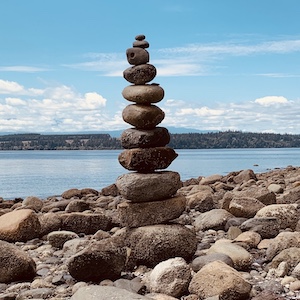
Aug 30, 2020
WordPress Unit Testing Techniques
I've learned a lot about how to avoid common issues and making life writing tests in WordPress a little easier. This post is a collection of ways I've found to accurately and thoroughly test a plugin.
Older
Apr 04, 2020
A Moment in Time During the Pandemic
The first time things started getting real for me during this Coronavirus pandemic was at the end of February. The pandemic, however, had already started.